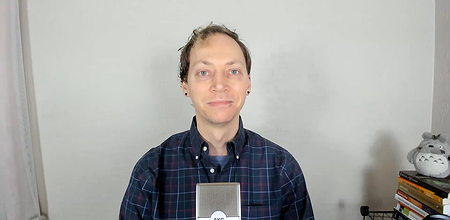Psychedelic-assisted therapy is a burgeoning field that offers exciting new possibilities for the treatment of mental health conditions. This innovative approach involves the use of psychedelics, such as psilocybin and MDMA, in a controlled therapeutic setting to treat conditions like depression, PTSD, substance use and more. The integration of these substances into therapy is not only revolutionizing the treatment landscape but also expanding the roles of mental health professionals.
Impact on mental health and transformative potential of psychedelic therapies
Psychedelic-assisted therapy represents a significant shift in the treatment of mental health disorders. Antidepressant medications do not work for everyone and often come with undesirable side-effects. Furthermore, they tend to simply mask symptoms, rather than resolving their underlying causes. Traditional psychotherapy, on the other hand, can often be a lengthy process with mixed results.
In contrast, psychedelic-assisted therapy has shown remarkable efficacy in clinical trials, using the psychotropic properties of the substance to catalyze and deepen therapy, accelerate insight and facilitate healing.
Highly promising preliminary data
Studies have indicated that when administered in a controlled environment, psychedelics can help patients achieve profound insights and emotional release that are sometimes not reachable through conventional therapy alone. For example, psilocybin-assisted therapy has been found to significantly reduce depression and anxiety in patients with life-threatening cancer, offering relief that lasts months after just a single session.
Similarly, MDMA-assisted therapy is showing great promise in treating PTSD.
An opportunity for career specialization
The field of psychedelic-assisted therapy not only offers a chance to be at the forefront of cutting-edge medical advancement but also to deeply engage in transformative therapeutic work.
Therapists specializing in this promising novel area of mental health stand out in a growing field. Training typically includes comprehensive programs that not only cover the pharmacological aspects of psychedelics but also the development of skills needed to guide patients through the intense emotional and perceptual experiences induced by these substances.
Many therapists practicing with psychedelic-assisted therapies report finding the work exceptionally rewarding. They witness profound changes in their patients, often in shorter time frames than traditional therapies would allow. This can be deeply fulfilling for therapists seeking to make a significant impact in their patients' lives.
The importance of a supporting community
A community of practice is indispensable in the field of psychedelic-assisted therapy. This community provides crucial support, ongoing education, and a network of peers that can share insights and guidance. The nature of psychedelic therapy, with its evolving legal status and emerging research, requires practitioners to stay well-informed and connected.
Furthermore, this work can be uniquely depleting and emotionally challenging, which highlights the importance of supervision and peer support. For these reasons, I recommend that professionals search for psychedelic community groups, clinics, researchers, and training organizations that are local to them.
A new frontier for psychotherapists
Psychedelic-assisted therapy offers a career path full of opportunities for deep personal and professional growth. The support from a community of practice is vital, ensuring that practitioners receive the backing, resources, and collaboration needed to thrive and push the boundaries of what is possible in therapy. As the founder of Refuge, I have put community at the center of care, ensuring safe and supportive experiences for clients and therapists.
Dr. Joe Flanders, psychologist, and founder of The Refuge
References
- https://ajp.psychiatryonline.org/doi/10.1176/ajp.2006.163.11.1905?url_ver=Z39.88-2003&rfr_id=ori%3Arid%3Acrossref.org&rfr_dat=cr_pub++0pubmed&
- https://www.scientificamerican.com/article/psychedelics-as-antidepressants/
- Griffiths RR, Johnson MW, Carducci MA, Umbricht A, Richards WA, Richards BD, Cosimano MP, Klinedinst MA. Psilocybin produces substantial and sustained decreases in depression and anxiety in patients with life-threatening cancer: A randomized double-blind trial. J Psychopharmacol. 2016 Dec;30(12):1181-1197. doi: 10.1177/0269881116675513. PMID: 27909165; PMCID: PMC536755
- https://www.nature.com/articles/s41591-023-02565-4

